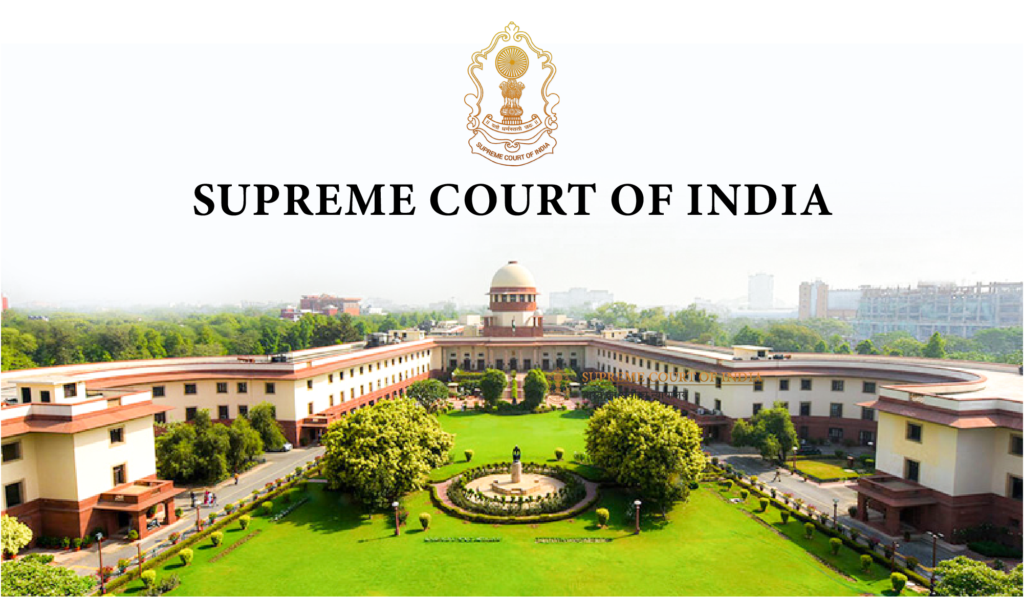In a landmark judgment with far-reaching implications for service jurisprudence, the Supreme Court of India, led by Justices Pamidighantam Sri Narasimha and Sandeep Mehta, delivered a verdict on November 27, 2024, emphasizing the sanctity of rules governing promotions in public service. The case, Government of West Bengal & Ors. vs. Dr. Amal Satpathi & Ors. (Civil Appeal No. 13187 of 2024), not only clarifies the process, but also safeguards the principles of equity and fairness.
Promotion: A Statutory Right, Not an Absolute Privilege
The Supreme Court reiterated the distinction between the right to be considered for promotion—a fundamental and statutory right—and the actual granting of promotion, which remains contingent upon assuming the duties of the promotional post. Promotions cannot be awarded retroactively after an employee’s retirement, ensuring transparency and fairness in administrative processes.
This judgment addressed the complexities of a case involving Dr. Amal Satpathi, a retired Principal Scientific Officer from West Bengal. Despite his eligibility and recommendation for the post of Chief Scientific Officer prior to his retirement on December 31, 2016, administrative delays meant that he never formally assumed the post. Dr. Satpathi sought notional financial benefits for the higher post, but the Court, upholding service rules, denied retrospective promotion, reinforcing that promotions are effective only when the individual assumes the responsibilities of the new role.
A Balanced Approach: Equity vs. Rule Compliance
The case illuminated the fine balance between providing equitable relief and adhering to established rules. While the High Court of Calcutta and the West Bengal Administrative Tribunal had previously directed the provision of notional financial benefits to Dr. Satpathi, the Supreme Court overruled these judgments. The ruling emphasized that granting such benefits would contravene Rule 54(1)(a) of the West Bengal Service Rules, 1971, which mandates that higher pay is only justified upon assuming the responsibilities of the higher post.
This decision reflects the judiciary’s commitment to consistency and fairness in service matters. By recognizing the administrative delays as regrettable but not grounds for retrospective financial rewards, the Court maintained the integrity of the rules without undermining individual rights.

The Ripple Effect: Key Takeaways
- Promotion Process Integrity: The judgment underscores that promotions must be timely and transparent, with no room for arbitrary delays that might affect the employee’s career progression.
- Service Jurisprudence Clarity: By reaffirming that the right to be considered for promotion is fundamental but not equivalent to the right to promotion itself, the verdict establishes a clear precedent for future cases.
- Fair Play in Administration: The decision ensures that employees who assume greater responsibilities are duly rewarded, fostering a culture of accountability and fairness.
A Glimpse into Judicial Wisdom
Citing previous rulings, including Union of India v. N.C. Murali (2017) and Sunaina Sharma v. State of Jammu & Kashmir (2018), the Court emphasized the precedence of duties assumed over mere eligibility or recommendation. This approach aligns with the principles enshrined in Articles 14 and 16 of the Constitution, promoting equality of opportunity without granting undue privileges.
Justice Mehta, delivering the judgment, highlighted, “While the right to be considered for promotion is sacrosanct, the effectiveness of a promotion depends on the assumption of the responsibilities associated with the post. Rules exist not to constrain but to guide equitable and efficient governance.”
Positive Implications for Governance
This decision has set a benchmark for promoting merit and accountability in public service. By ensuring promotions are contingent upon active assumption of duties, the Court has reinforced a meritocratic ethos. This clarity benefits both employees, who are assured of procedural fairness, and administrative bodies, which gain guidelines to streamline processes.
The Road Ahead
For policymakers and administrators, this judgment is a call to action. It highlights the need to:
- Streamline promotion procedures to prevent undue delays.
- Ensure timely recommendations and approvals to uphold employee rights.
- Establish mechanisms to address grievances arising from procedural delays.
The verdict serves as a reminder that governance is a collective responsibility, and every stakeholder must work towards fostering an environment of fairness and efficiency.
Celebrating Positive Progress
As the Supreme Court concluded the case, its ruling echoed a deeper message: adherence to rules, coupled with equitable consideration, strengthens the foundation of public service. This decision is not just about the denial of retrospective benefits but a celebration of judicial integrity and fairness in service law. It inspires trust in the judiciary and optimism for reforms that prioritize efficiency and equity.
The Supreme Court’s judgment in Government of West Bengal & Ors. vs. Dr. Amal Satpathi & Ors. stands as a beacon of justice, reinforcing the principles of equality and fairness. While it denied retrospective benefits, it opened avenues for reform and clarity in administrative practices. This positive outlook on service jurisprudence is a testament to India’s evolving governance framework—one that values transparency, accountability, and fairness above all.






